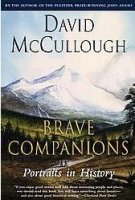Which is worse, losing your technical edge, or losing your technical edge and pretending you didn't?
When I was young, "Made in Japan" implied useless, cheap, junky. I'm thrilled that it now means quite the opposite. Excellence is a good thing, and I see no reason to mourn when other countries compete at our level or even best us in some areas. A little competition keeps us on our toes.
But why does it take innovations from Japan so long to cross the Pacific?
When Janet lived and worked in Japan for a year, she noted that home computers were much less common than in America. I was surprised this was the case for such an advanced nation, but then again, most people don't have clothes dryers there, either. What did surprise me was to learn that in this Japan was not behind America, but ahead. Most Japanese did not need personal computers because they did nearly everything they wanted to on their mobile phones. They accessed the Internet; they paid their bills; they read and composed their e-mails. This was in 2005, years before smartphones took America by storm.
Then there were the toilets. Ever since we visited Janet in Japan I have been wondering why Home Depot doesn't sell Japanese toilets. Now, finally, the National Association of Home Builders includes one in this years showcase home. But why does this review from the Orlando Sentinel pretend it's a new, American invention?
I cannot get the toilet in the master bath out of my mind. Kohler clearly has some smart woman on its design team, because, ladies, this commode is for you.
At the touch of a wall-mounted LED pad that looks like an iPhone, you can auto-magically raise and lower the lid without touching it. That right there is better than a European vacation. And you can heat the seat (men, you will never understand), and play music. Not only that, this smart piece of plumbing sprays, dries and has adjustable flushing. From what I can tell, this toilet of tomorrow does everything but send a urine sample to the lab.
I"m glad American companies are catching on. But what took them so long? And why do we pretend things are new and amazing when they've been around elsewhere for years?
Permalink | Read 2165 times | Comments (0)
Category Random Musings: [first] [previous] [next] [newest]
From this distance, I find it difficult to remember what our children did when. But today I delved back into past diaries, looking for information on when it was we bought our current dishwasher. (More on that in a later post.) Here is something amusing I found:
[Today] Janet had her kindergarten registration. [The first grade aide] filled out [her] card, and when Janet not only knew her phone number and address with zip code, but also spelled "Wightman" for her, she said, "I guess you're ready for kindergarten!"
I had not remembered that Janet could spell her last name before going to kindergarten, I but I guess that when you have a name that everyone misspells, you learn to spell it early. She would have heard her parents answering the "What is your name?" question enough times that for all I know she thought her name was really "Janet Wightman W-I-G-H-T-M-A-N"!
Permalink | Read 2486 times | Comments (2)
Category Everyday Life: [first] [previous] [next] [newest]
I can't be griping all the time. Here's some great news for homeschoolers—and others who don't fit in the standard school model—who have suffered, as we did, from age discrimination by community colleges. Here are some excerpts from the encouraging story in tomorrow's Orlando Sentinel. (I know. Don't ask me why a column dated February 19 is available on the 18th, but it is.)
Two years ago, [Lake-Sumter Community College] refused to admit as a dual-enrollment student a then-12-year-old Center Hill girl who was more than academically qualified to study at the two-year community college. Instead of enthusiastically embracing Anastasia Megan, a brilliant young woman home-schooled by her parents, college administrators took the most backward stance imaginable and fought to keep her out.
The U.S. Department of Education's Office for Civil Rights in Atlanta, to whom Annie's family complained, recently closed the matter after LSCC eliminated its age requirement, trained employees to stop discriminating and offered Annie a chance to apply.
However, by the time LSCC offered to consider Annie in July 2011, it was clear that her course of study already had outstripped what the community college could provide. Starting in August, Annie, now 14, and another of the triplets, her brother Zigmund, will attend Queens University in Ontario, Canada. She was among 300 successful applicants to the college of business and commerce from a field of 5,000. ... Annie's brother is entering the university's engineering school (Annie's second choice), and the third triplet, Elizabeth, is enrolled in a high-school International Baccalaureate program.
[S]uch a ruling by the Office for Civil Rights is likely to have an effect on community colleges statewide. It's all about access in community colleges, and that's the way it ought to be. The Megan family neither asked for nor received a nickel in damages. The Megans didn't hire a lawyer. LSCC, however, spent about $12,000 on attorney fees fighting to discriminate against a kid whose achievements were remarkable. Asked why the college ever would fight to keep any student out, [College President Charles Mojock] said: "That was then, and this is now. We live and learn too."
After six nephews, four grandsons, and 29 years, we once again have two little girls who fit these adorable outfits. Picture credit for the second goes to Heather and Jon Daley; the first is scanned from an old, washed out Polaroid-style print, but you get the idea.
Janet and Heather, December 1982
Joy and Faith, January 2012
Permalink | Read 2538 times | Comments (4)
Category Children & Family Issues: [first] [previous] [next] [newest]

Brave Companions: Portraits in History by David McCullough (Simon & Schuster, 1992)
I need to remember to read more from David McCullough. The man can write.
Brave Companions deserves a long, thoughtful review. I could write a blog post on any and all of these fourteen portraits (thirteen of people, one of a city) and three additional essays. McCullough draws stunning pictures of people—famous and unknown, artists and aviators, writers and scientists—whose actions and personalities made (and are making) history.
But I barely had time to read the book, let alone write about it, and I must now return it to its rightful owner. If you, however, find yourself with sufficient time to enjoy a short book (232 pages) that's easy to read in short bursts (except that you won't want to put it down), you can't go wrong with Brave Companions.
I'd read it for the writing alone; the history, personality, and adventures are a bonus.
On Monday, Vivienne received the blessing of the Swiss government; today we travelled to the American Embassy in Bern for a simlar benediction from the United States. As I did when Joseph was born, I came along to hold diaper bags and other items not allowed in the embassy, which includes purses (or bags of any sort) and cell phones (or electronics of any sort). Fortunately, winter coats were acceptable, as were a couple of diapers stuffed in the pockets.
Really, it's a very un-welcoming experience, a visit to this little bit of American soil in Switzerland. Embarrassing, when you think of the impression we are making on others. (Okay, so Hollywood does a worse job, but at least they're not official.) There is no waiting room, unless you count the small antechamber outside, where those waiting in line are subjected to the summer's heat or winter's cold—though a roof provides some protection from rain, if it isn't too windy.
But we were prepared. Joseph and I were well-dressed, and had the stroller with us. As soon as Vivienne and her parents passed through the security check, he and I started out on our adventure. (More)
I'll never convince a credit-card wielding American, but shopping with cash in a country like Switzerland is great! I'll admit that I love the convenience of credit cards, mostly for online purchases, buying gas (drive in, swipe the card, pump, go), and the neatly organized monthly statements. And, of course, never worrying about having enough cash at the grocery store.
That last is part of the problem. With cash, I see the exact cost of what I'm buying. There's something visceral about handing over the bills and coins. The money I had, I no longer have. And if I don't have enough, I have to put something back on the shelves and buy it later, or never. I have no statistics to back up my assertion, but I'm absolutely certain that I spend more money, more freely, since we moved away from making most of our purchases with cash.
What's especially nice about using cash in Switzerland, however, is their system of coins and currency. The smallest bill is the 10-franc note; coins come in 5-, 2-, 1 and 1/2-franc denominations, plus 20-, 10- and 5-rappen (cents). Note that there is no 1-rappen coin. This makes calculations very easy, especially since any taxes are hidden in the price of the item. What you see is what you pay. With only multiples of five to worry about, it's very easy to keep a running total of the cost of what's in my cart. Therefore, before the checkout clerk has finished scanning my items, I know what the total is going to be, and with what combination of bills and coins I plan to pay. And I know exactly how much change I should receive.
I find that extremely satisfying. I'm not good enough with mental arithmetic to bother with it at home. Let's see: 14.88 plus 5.54; that's uh, um, oh something more than $20. Hmmm, should I buy orange juice at $3.99 or grapefruit at $3.85? How much are tomatoes per pound today? Do we need mayonnaise? Oh, bother, I've forgotten the total. And even if I remember it, I know that when the clerk is done ringing up my order, she's going to add an awkward 7% sales tax, but only to certain items, and I'm never sure just which ones. So I meekly hand over my credit card and hope every part of the system is honest, accurate, and not broken down.
Cash - multples of five - clear pricing. What an empowering combination!
There's some debate just what Emmen is. Stephan says it's a suburb of Luzern, and I suppose it is, Luzern being a 15-minute bus ride, or an even shorter train ride, away, which we proved today when Vivienne acquired her Swiss passport. But it hardly has a "suburban" feel, at least as I know suburbs. For one thing, there's decent public transportation—but that's no doubt because it's Swiss. For another, most people live in apartments, which says "city" to me, though Janet says that is also a Swiss characteristic, city or no. There's traffic. There's industry. There are plenty of stores, but no strip malls (though there is a mall or two). Everything is close together, and what yards there are, are tiny. Children walk to school. Janet walks to the grocery store (actually, several grocery stores), the train station, the above-mentioned malls, the swimming pool complex, and church. That feels like a city to me.
And yet.... Emmen certainly isn't a city like Basel, or Luzern, with a lively city center, and centuries of history and culture. And it has a rural feel, as well. Also within easy walking distance is a long hiking trail along the river (pedestrian, bike, and also equestrian in most places). The trail runs through wooded areas where trees are still being harvested by loggers.
(Switzerland is a great place for hiking trails. There's one that leads all the way into the city of Luzern; we had planned to hike it today, but the -9 degree Celsius temperature was a deterrent. Perhaps we should have taken advantage of such balmy weather, though: tomorrow's high is supposed to be -10, with a wind chill of -16 (that's 3 degrees Fahrenheit).
There are also several small farms nearby. One of Joseph's favorite walks is to the see the cows and goats at the nearest dairy farm, where for a single franc we pick up a liter of fresh, delicious, raw milk. (Click on the pictures to enlarge.)
So, what is Emmen? Whatever it is, it's like nothing in the United States that I know of.
Lately it's looked a lot more like picture-perfect Switzerland, thanks to the snow and cold. Except that it could be picture-perfect New York, or Pittsburgh, or Minnesota, because even today, when the sun came out, the Alps were obscured by low clouds.
Weather or no, Joseph likes to be outside. He loves the snow, which he calls "no," except when talking to Bappe (Daddy); then he says "nee" (Swiss German "Schnee").
On our walk the other day I'd intended to get some video footage of him playing in the snow, but he kept getting distracted by airplanes and other vehicles.
What may not be obvious is why he suddenly stops in the middle: his hat catches on an overhanging branch. After breaking loose, he's a bit unhappy—until another airplane comes by.
Permalink | Read 2682 times | Comments (1)
Category Children & Family Issues: [first] [previous] [next] [newest]
Still famous after all these years. Check out the news about the light a copy sheds on da Vinci's masterpiece. (Just a quick post for those interested in art. Those interested in Joseph & Vivienne updates will have to wait, sorry.) (Thanks, Aunt Karen.)
Permalink | Read 2779 times | Comments (0)
Category Random Musings: [first] [previous] [next] [newest]
Way to make everyone mad, Susan G. Koman folks. Either make a decision, or don't. If you're thinking about an action as inflammatory as appearing to attack an American idol like Planned Parenthood, be sure you have the guts to stick it out—or don't even start.
Frankly, it never occurred to me that you would be taking money donated to help find a cure for breast cancer and giving it to such a controversial organization. Now I know that for me to support Susan G. Koman for the Cure makes about as much sense as for a PETA member to invest in Big Meat.
Joseph has two different words for "spin." One, pronounced "pin," refers to when he, himself, is spinning. The other I haven't yet figured out how to transcribe, but it has two syllables and refers to spinning an object, like a top, a ball, a block, a coin. Whether it's supposed to be one word, or a two-word command, the meaning is clear when he hands you an object: "Spin it!" You'd be surprised at how many items that are not tops can be made to spin.
"Pin," on the other hand, can refer to being spun in someone's arms, or twirling himself around till he staggers with dizziness, or being spun on Mommy's office chair. When he does the last sitting backwards and holding on to the seat back, it can be very fast, and produces an impressive postrotatory nystagmus.
He also likes this, sitting in his space capsule (backpack) and training for NASA. The position makes up for the reduced rotational velocity. At the end he is saying and signing, "more."
This was the first video, taken nearly two weeks ago to let Dad-o know that Joseph is thinking about him even though he isn't here with us.
We love you, Dad-o!
Here's an interesting article from Newsweekon the popularity of homeschooling with "urban, educated" parents.
We think of homeschoolers as evangelicals or off-the-gridders who spend a lot of time at kitchen tables in the countryside. And it’s true that most homeschooling parents do so for moral or religious reasons. But education observers believe that is changing. You only have to go to a downtown Starbucks or art museum in the middle of a weekday to see that a once-unconventional choice “has become newly fashionable,” says Mitchell Stevens, a Stanford professor who wrote Kingdom of Children, a history of homeschooling. There are an estimated 300,000 homeschooled children in America’s cities, many of them children of secular, highly educated professionals who always figured they’d send their kids to school—until they came to think, Hey, maybe we could do better.
We've come a long way in the 25+ years of my experience. (Not that "evangelicals or off-the-gridders who spend a lot of time at kitchen tables in the countryside" comes close to being an accurate description of the home education movement at any time that I remember. It was always much broader than that.)
One consequence of the increasing popularity of homeschooling is that there is now enough collective knowledge that journalists are less likely to write utter nonsense. I found the article to be fairly accurate. An exception would be the section equating homeschooling with attachment parenting, which they define as, "an increasingly popular approach that involves round-the-clock physical contact with children and immediate responses to all their cues." This bizarre description makes it sound as if mothers continue to carry their eight-year-olds around in slings all the time. No normal one-year-old would put up with that, let alone someone of school age.
Other than that, it's a pretty fair article, considering it was written by someone on the outside looking in. And considering the really clueless articles that have been written on homeschooling over the years.
We interrupt the Life with Joseph series to bring you this very important post from the Occasional CEO: Lowell on the Yangtze.
Whenever I read about the Industrial Revolution—or watch a movie like How Green Was My Valley, I can't help thinking that it could have been done better. Couldn't we have had automation and factories without all that dislocation, degradation and filth?
Of course we could have. Raping the landscape, tearing families apart, and keeping workers in virtual slavery are not essential to production—if businesses are willing to take a little less profit, and consumers to pay a little more for the product. But that's not how it happened. (More)






